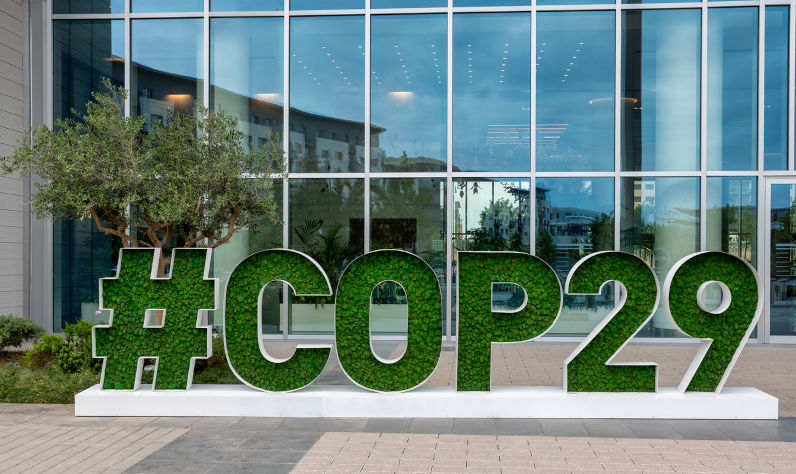COP 29: grossly inadequate funding signals a deepening East–West divide
November 26, 2024
Developing countries at COP 29 presented the Western world with an annual US$1trillion financial transfer bill for the cost of their profligate carbon fuelled global warming inducing industrialisation. That sum was no NGO rule of thumb figure but one produced by an organisation funded by Western governments themselves - the International Energy Agency, the world’s foremost body dealing with energy. Despite these credentials, the West saw fit to radically discount its bill by two thirds to US$300 billion.
The West’s miserliness is of its own making. That the cost is now so massive speaks for decades of inaction – of kicking the CO2 can down the road. We have now arrived ‘down the road’ and that we are obliged to pay for the climate change damage we have and will impose on the third world – in addition to our own massive climate change costs - is incontrovertible. Which is to say we of the wealthy West have been enriching ourselves at the expense of the third world by emitting way above our ‘rightful’ share of CO2 - that is, of the limited volume of emissions which can be emitted before we seriously cook the planet. We are nowhere being confronted in the Western press of this (Webb P and I July 18): of the fact that, on a cumulative basis since industrialisation, OECD countries have accounted for 60-70% of carbon emissions while accommodating a mere 17% of the globe’s population. India with 18% of global population accounts for a mere 3-4% of cumulative emissions. Even China’s cumulative emissions per capita have reached only around 75% of the global average while the US is around 5 to 6 times the average (Australia 4 times). And given that rising consumption is driving still rising emissions we should also be reminded that Australians, followed by the USA, Canada and Japan are globally the most profligate consumers per capita.
That climate inaction has delivered a quantum increase in the West’s bill for climate change mitigation and adaptation in third world countries is alarmingly quantified in a recent study in the prestigious journal Nature ( The economic commitment of climate change | Nature). A globally stark climate change future is presented by an estimated global income reduction of 19% by 2050 based on climate change damage already in train – that is, notwithstanding if there were to be immediate and sustained drastic reductions in carbon emissions. The overall cost comes in at around $38 trillion.
Why the costs for third world countries are so high relates to their particular vulnerability to the effects of climate change. The Nature article shows that in the pipeline climate change damage “……is significantly larger in countries with smaller historical cumulative emissions, as well as in regions with lower current income per capita”. This, the authors conclude was demonstrably unjust. “This implies that those countries that will suffer the most from the damages already committed are those that are least responsible for climate change and which also have the least resources to adapt to it”.
Exactly why climate change imposes higher costs on third world countries relates to a number of factors. Many are located in the tropics and therefore suffer most from higher temperatures. They also typically have large agricultural sectors which are highly sensitive to climate change. The costs of mitigation in developing countries are also higher than in the developed world given higher costs of finance.
The bad news for the West in terms of its financial obligations does not unfortunately stop here. Other studies ( The price of a changing climate: extreme weather and economic loss and damage in SIDS | ODI: Think change) indicate that even the IEA’s estimate of an annual US$1 trillion bill may be a serious underestimation given already extreme weather is costing at risk island nations US$141 billion each year and which could rise to US$1 trillion annually by 2030.
The obvious dilemma for Australia and other Western countries is that we are still kicking the now monstrously expensive carbon can further down an increasingly high cost road. This, at a time when our own national bill for mitigation and de-carbonisation is rising inexorably due to our inaction and when our badly flawed democracies are not delivering anywhere near the resources needed to impede reaching 1.5C. The prospect of grossly inadequate financial transfers to the third world in unsuitable forms is surely a recipe for a deepening east west cleavage and rising global insecurity. Such a future will be pretty well guaranteed if, as can be expected, Trump rejects any notion of financial responsibility and dries up climate change financial transfers to the third world.

